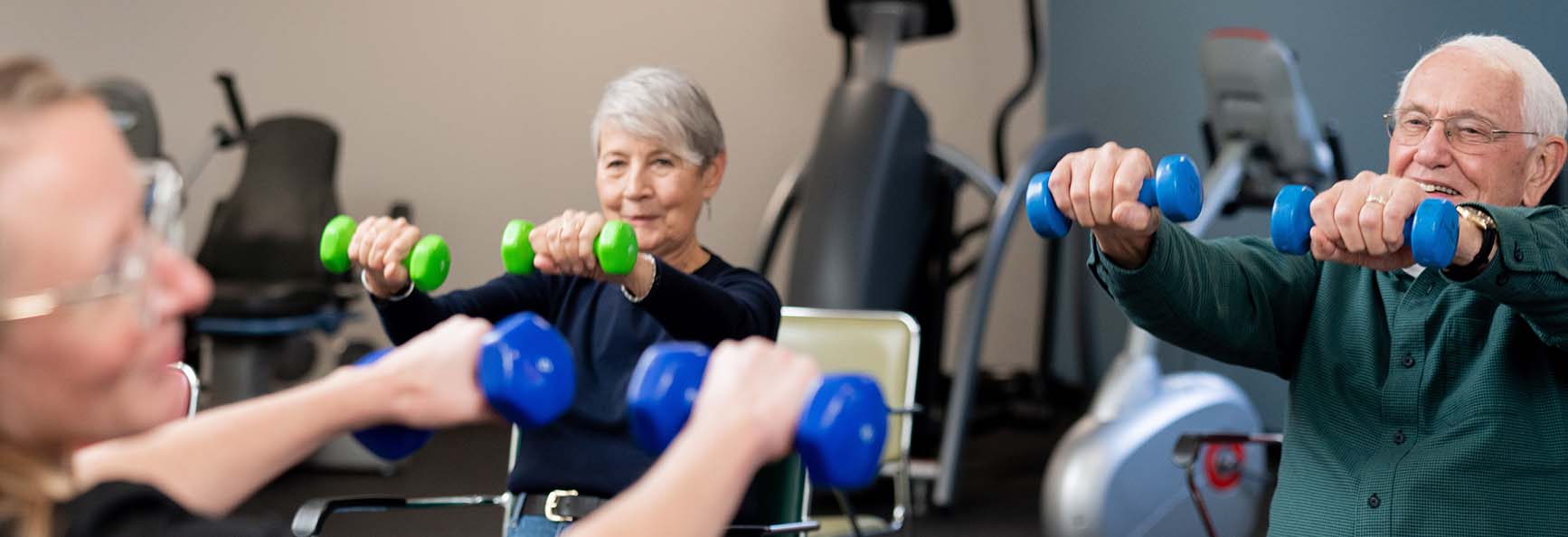Sleep: The Challenge of Aging
September is designated as Healthy Aging Month, an annual observance that focuses on promoting positive aging and encouraging healthy habits for older adults. It aims to raise awareness about the physical and mental aspects of aging and inspires individuals to prioritize their well-being. One key aspect to maintaining health as we age is asleep.
Complaints of sleep problems are common among older adults. In a National Institute on Aging study of over 9,000 persons aged 65 years and older, over one half of the men and women reported at least one chronic sleep complaint. As we age, we often experience normal changes in our sleeping patterns, such as becoming sleepy earlier, waking up earlier, or enjoying less deep sleep. However, disturbed sleep, waking up tired every day, and other symptoms of insomnia are not a normal part of aging. Appropriate rest is important to older adults because it helps improve concentration and memory formation, allows your body to repair any cell damage that occurred during the day, and refreshes your immune system, which in turn helps to prevent disease.
Research shows that older adults who don't sleep well are more likely to suffer from depression, attention and memory problems, and excessive daytime sleepiness. Furthermore, insufficient sleep can also lead to serious health problems, including an increased risk of cardiovascular disease, diabetes, weight problems, and breast cancer in women.
How much sleep do you need?
- Most healthy adults require 7.5 to 9 hours of sleep per night
- How you feel in the morning is more important than a specific number of hours
- Frequently waking up not feeling rested or feeling tired during the day are the best indications that you're not getting enough sleep
Sleep Changes as We Age
- As you age your body produces lower levels of growth hormone, so there is a decrease in deep sleep
- When this happens you produce less melatonin, meaning older adults often experience more fragmented sleep and wake up more often during the night
- The sleep-wake cycle in older adults may be fragmented, with interrupted nighttime sleep and daytime wakefulness interrupted by naps
- The circadian rhythm changes resulting in older adults going to sleep earlier in the evening and awakening earlier in the morning
Causes of Sleep Problems in Older Adults
- Poor sleep habits and sleep environment
- Lack of exercise
- Pain or medical condition
- Stress
- Menopause and post menopause
- Lack of social engagement
- Medications
- Sleep disorders
- Lack of sunlight
How do I know if I have sleep disorder?
- It's common to experience occasional sleep problems
-
If you experience any of these symptoms on a regular basis, you may have a sleep disorder:
- Have trouble falling asleep even though you feel tired
- Have trouble getting back to sleep when awakened
- Don't feel refreshed after a night's sleep
- Feel irritable or sleepy during the day
- Have difficulty staying awake when sitting still, watching television, or driving
- Have difficulty concentrating during the day
- Rely on sleeping pills or alcohol to fall asleep
- Have trouble controlling emotions
- If you think you have a sleep disorder, consult your healthcare provider to discuss treatment options
- Evaluation of sleep problems should include a thorough history of such problems, medication reviews, an assessment of your bedtime routines, and comprehensive medical evaluatiion
How Can You Improve Your Sleep Habits?
-
Create a better sleeping environment
- Artificial lights at night can suppress your body's production of melatonin, the hormone that makes you sleepy
- Use low-wattage bulbs
- Turn off the TV and computer at least one hour before bed
- Don't read from a backlit device at night (such as an iPad)
- Make sure your bedroom is quiet, dark, and cool
- Use your bedroom only for sleep and sex
-
Move bedroom clocks out of view
- The light can disrupt your sleep and anxiously watching the minutes may cause insomnia
-
Maintain a regular bedtime routine
- Keep a consistent sleep schedule
- Block out snoring
- Go to bed earlier
- Develop soothing bedtime rituals
- Limit sleep aids and sleeping pills
Diet Tips to Improve Sleep
- Avoid caffeine late in the day
- Avoid alcohol before bedtime
- Satisfy your hunger prior to bed
- Avoid spicy foods just before bedtime
- Eat a modest sized dinner at least three hours before bedtime
- Limit what you drink within the hour and a half before bedtime
Exercise and Sleep
A study at Northwestern University found that aerobic exercise resulted in the most dramatic improvement in quality of sleep, including sleep duration, for middle-aged and older adults with a diagnosis of insomnia. Try to finish your physical activity at least three hours before bedtime.
Participating in the following activities may assist you in preparing yourself for a good night's sleep:
- Swim/Water exercises
- Dance
- Golf
- Cycling
How Can Wellness and Rehabilitation Professionals Help?
The Rehabilitation/therapy team can help! They use knowledge of sleep physiology, sleep disorders, and sleep promotion practices to evaluate and address the functional concerns of sleep disorders on occupational performance and participation. Seeking professional advice to analyze your unique situation can often result in simple solutions. Interventions focused on promoting optimal sleeping patterns in their clients include such things as:
- Educating clients and caregivers on sleep terminology, misconceptions, and expectations
- Preventing secondary conditions that may diminish sleep quality (e.g., decreased range of motion, depression, or anxiety)
- Encouraging smoking cessation, reduced caffeine intake, a balanced diet, adequate exercise, etc
- Establishing predictable routines, including regular times for waking and sleeping
- Managing pain and fatigue
- Addressing activities of daily living, particularly for bed mobility and toileting
- Establishing individualized sleep hygiene routines (e.g., habits and patterns to facilitate restorative sleep)
- Teaching cognitive-behavioral and cognitive restructuring techniques, such as leaving the bedroom if awake and returning only when sleepy, or exploring self-talk statements regarding sleep patterns
- Increasing coping skills, stress management, and time management
- Addressing sensory processing disorders and teaching self-management or caregiver management
- Modifying the environment, including noise, light, temperature, bedding, and technology use while in bed
Wellness and Therapy professionals can offer professional advice and analyze your unique situation which may result in simple solutions for sleeping problems. They can provide practical and helpful information and resources to assist in health promotion such as preventing sleep problems that are commonly experienced. The team can provide educational programs and treatment groups or classes to address sleep hygiene and develop and instruct on techniques that will help to facilitate better sleep.
You don't have to live with poor sleep! While lack of sleep may seem minor, it can have major negative effects on your activities and quality of life. It can also contribute to many other health conditions, some of which are dangerous over time. It is important not to dismiss or ignore it. You can take many steps to improve your sleep and wake up to a new and daZZZling day!


